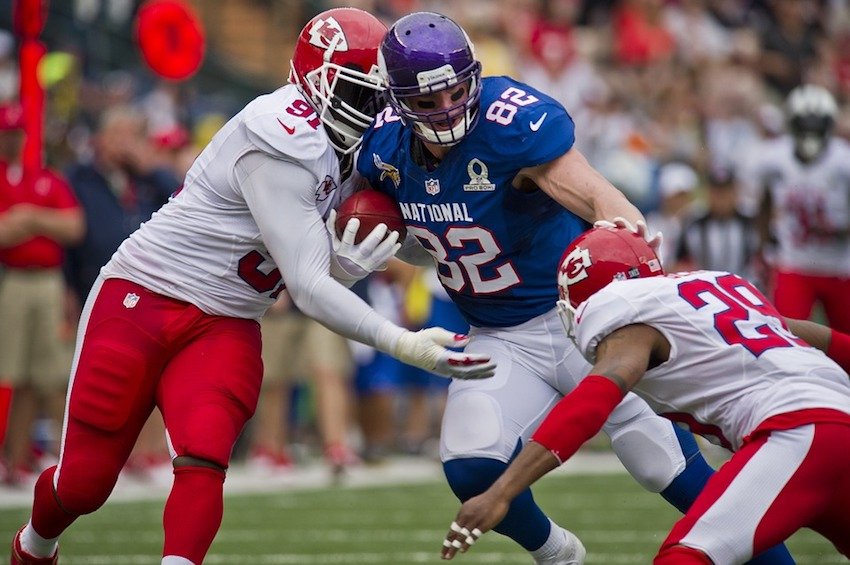FanDuel and DraftKings have made a joint decision to abandon efforts toward a merger that faced heavy opposition from federal antitrust regulators, Alex Schiffer of The Washington Post reports. The deal, which the companies agreed to pursue in November, would have given the merged company 90% of the market share in the daily fantasy sports sector, the Federal Trade Commission said when it announced its intention to intervene.
Following the FTC’s statement against the alliance, Judge Ketanji Brown Jackson of the U.S. District Court for the District of Columbia issued a temporary restraining order against the deal, Schiffer said in a prior article.
The companies originally planned to contest the FTC’s stance, but decided not to because doing so would have precipitated a prolonged legal struggle. According to the New York Post, a scheduling conference between the companies and an administrative would have occurred Friday. The FTC’s trial was set to begin November 21, Schiffer said in the June article.
“It is in the best interest of our shareholders, customers, employees, and partners to terminate the merger agreement and move forward as an independent company,” FanDuel chief executive Nigel Eccles said in a statement Thursday. DraftKings CEO Jason Robins echoed Eccles’ sentiment in a statement of his own.
Eccles nonetheless maintained that the alliance “would have increased investment in growth and product development thereby benefiting consumers and the greater sports entertainment industry.”
But, Ted Lipsky, acting director of the FTC’s Bureau of Competition, holds that the merger would “deprive customers of the substantial benefits of direct competition between DraftKings and FanDuel.”
DraftKings and FanDuel differentiate themselves from other fantasy sports sites by focusing on daily challenges rather than season-long competitions. FanDuel’s website invites sports fans to “play, watch, and win” all in one day; TechCrunch has called FanDuel “the ‘one-night-stand’ of fantasy sports.” Both companies have argued that their daily-competition models are not markets in and of themselves, but niche offerings in a much greater fantasy sports sector.
Schiffer points out, though, that FanDuel “was considered the first of its kind when it was launched in 2009.”
Since then, FanDuel, founded in Austin, TX and currently based in New York City, has registered six million users, according to its website. In 2015, the privately-held company’s value cracked $1 billion.
DraftKings was established by Robins in 2012 in Boston, where it is still headquartered. The company now serves over 18 million customers, and its revenue is increasing by 30% yearly, Robins said in the aforementioned statement. In the same statement, he indicated plans to continue expanding DraftKings into international markets.
DraftKings and FanDuel have both come under plenty of legal fire in their short histories. Both websites offer pay-to-enter contests as well as free ones, and “authorities in several states” (Schiffer’s words) have taken legal action against the companies on the grounds that their fantasy sports games constitute gambling. Both companies have consistently argued that their contests involve skill.
In 2015, a class-action suit accused DraftKings and FanDuel of “negligence, fraud, and false advertising,” ESPN’s Darren Rovell reported. The suit alleged that each company ran analytics on the other’s site to determine “winning strategies, return on investment of certain strategies, [etc.].” Employees of either company who had access to such analytics could conceivably leverage the information to gain an unfair advantage on their competitor’s site. The suit was purportedly filed after a DraftKings employee won $350,000 on FanDuel in a single week.
Presumably, the powers that be at DraftKings and FanDuel decided the merger was not worth another long, expensive legal effort. So, the companies will continue independently; each CEO made it abundantly clear in his statement that he is excited about the direction in which his team is headed.
The daily fantasy sports powerhouses, both of which have built mammoth enterprises upon the thrill of competition, will continue to compete with one another.




























Comment Template